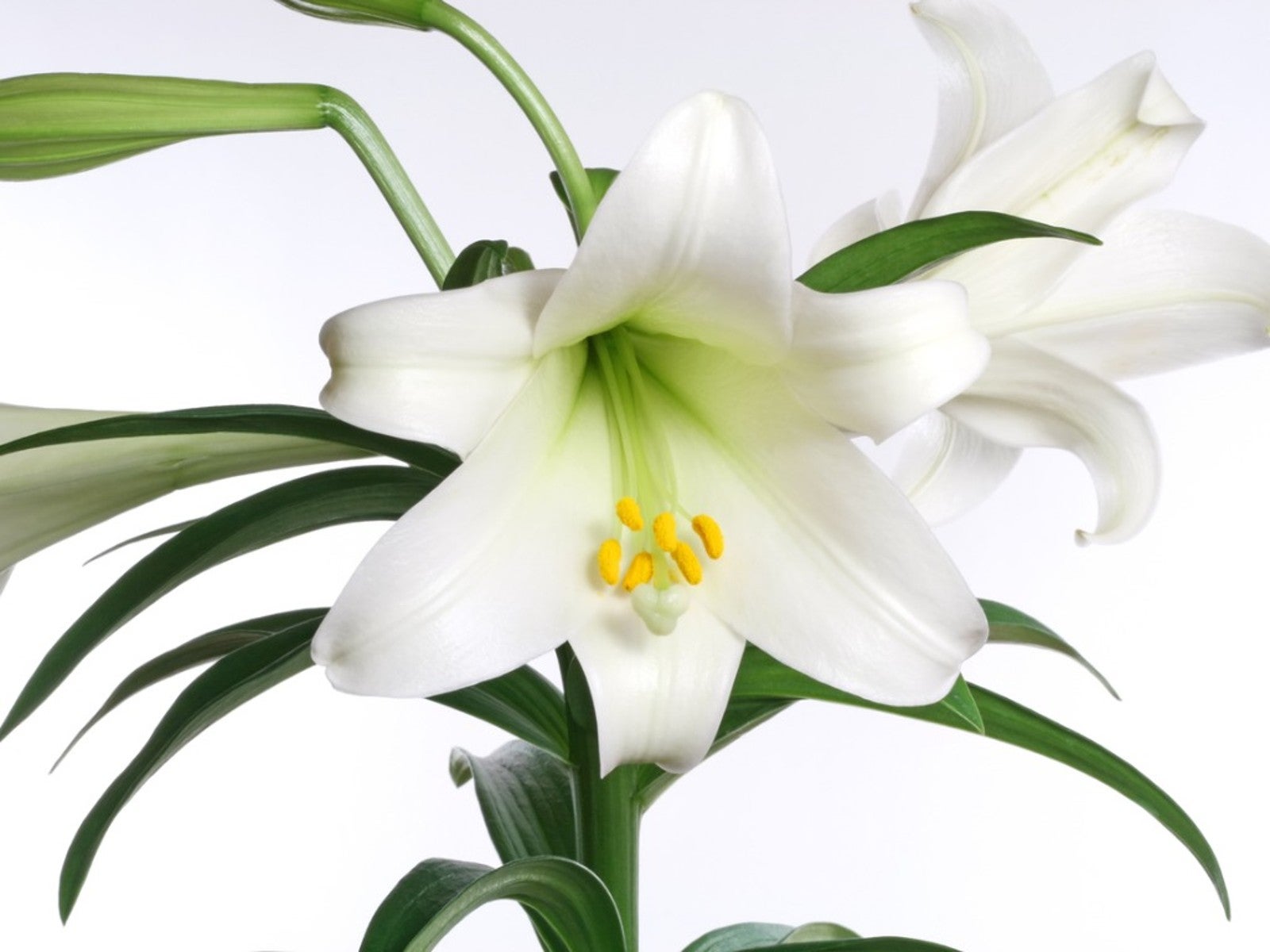How To Care For Easter Lily Indoors


Caring for Easter lilies indoors prolongs the life of this gorgeous plant. To get additional blooms and extend its life well beyond the Easter season, take good care of it inside and then plant it outdoors.
About Easter Lilies
The Easter lily (Lilium longiflorum) is native to southern Japan. Westerners discovered it in the 1800s and it became a popular cultivated plant, eventually becoming a symbol of the Easter holiday.
Today, in the U.S., just a handful of farms in the Pacific Northwest cultivate these plants for commercial sale. They grow the lilies and ship them to greenhouses where they are forced to bloom out of season and in time for Easter. Naturally they would bloom in summer.
While Easter lilies add a delicate and striking beauty to spring decorations, keep in mind that it is highly toxic to cats. Even a small amount of pollen can be deadly. If you have cats in the home, it’s best to avoid this plant entirely.
How Long Do Easter Lilies Last?
Many people buy these flowers as temporary decoration for the holidays and dispose of them after the blooms fade. An Easter lily can be a perennial if you take good care of it indoors, and plant it outside after the last frost.
Do Easter Lilies Rebloom Indoors?
Unfortunately, Easter lilies do not make good year-round houseplants. They do not rebloom indoors. The blooms you get in spring are carefully planned and forced. To get more flowers from your plant, it’s best to put it outside where it can potentially give you years of summer blooms.
Easter Lily Indoor Care
In order to get additional life and flowers from an Easter lily outdoors, you need to take good care of it indoors. Treat your temporary Easter décor well and it will continue to bloom for you in years to come. Start with a healthy plant. When choosing an Easter lily from the store, look for dense green foliage. Avoid plants that have been soaked with water or look a little wilted. Also avoid those with a protective sleeve still in place. These should be removed immediately as the plants arrive at the store.
Sign up for the Gardening Know How newsletter today and receive a free copy of our e-book "How to Grow Delicious Tomatoes".
Choose a spot inside that provides bright but indirect light. A cooler room is best. Easter lilies prefer daytime temperatures between 60 and 65 degrees Fahrenheit (15.5 to 18.3 Celsius) and a little cooler at night. Avoid locations with drafts or heat from radiators or heaters.
Make sure the container drains well and water the lily when the surface of the soil is dry. To water, remove any decorative cover and soak the soil completely. Let the water drain out and repeat a few times. Let it drain fully before replacing the cover.
To keep your lily attractive as it blooms, remove the yellow anthers. The pollen stains leaves, tablecloths and fingers. Snip off the flowers as they fade.
What to Do with Easter Lily After it Blooms
After you have removed all the spent flowers, leave your lily indoors until the last frost of the season. Until then, keep it in its perfect location and continue to water regularly.
Find a sunny spot outside to plant the bulb. Make sure the soil drains well, and add rich organic material. Plant the Easter lily bulb to a depth of about six inches (15 cm.), including a layer of mulch to a depth of about two inches (5 cm). Surround the plant with a good layer of mulch to retain moisture and keep the roots cool.
Cut back the plant’s leaves as they brown and die, and look for new growth. You should see new growth this first season, but don’t expect to get a second round of flowers. The plant is unlikely to bloom again until the following summer. Cut back the leaves and stems in fall as they fade and yellow. Add extra mulch in winter and remove some of it in spring to allow new growth to emerge. Use a balanced fertilizer in spring and until it blooms.
An Easter lily can provide years of pretty flowers. It’s important to care for it well during its brief life as a houseplant so that it will thrive outdoors in a perennial bed.

Mary Ellen Ellis has been gardening for over 20 years. With degrees in Chemistry and Biology, Mary Ellen's specialties are flowers, native plants, and herbs.